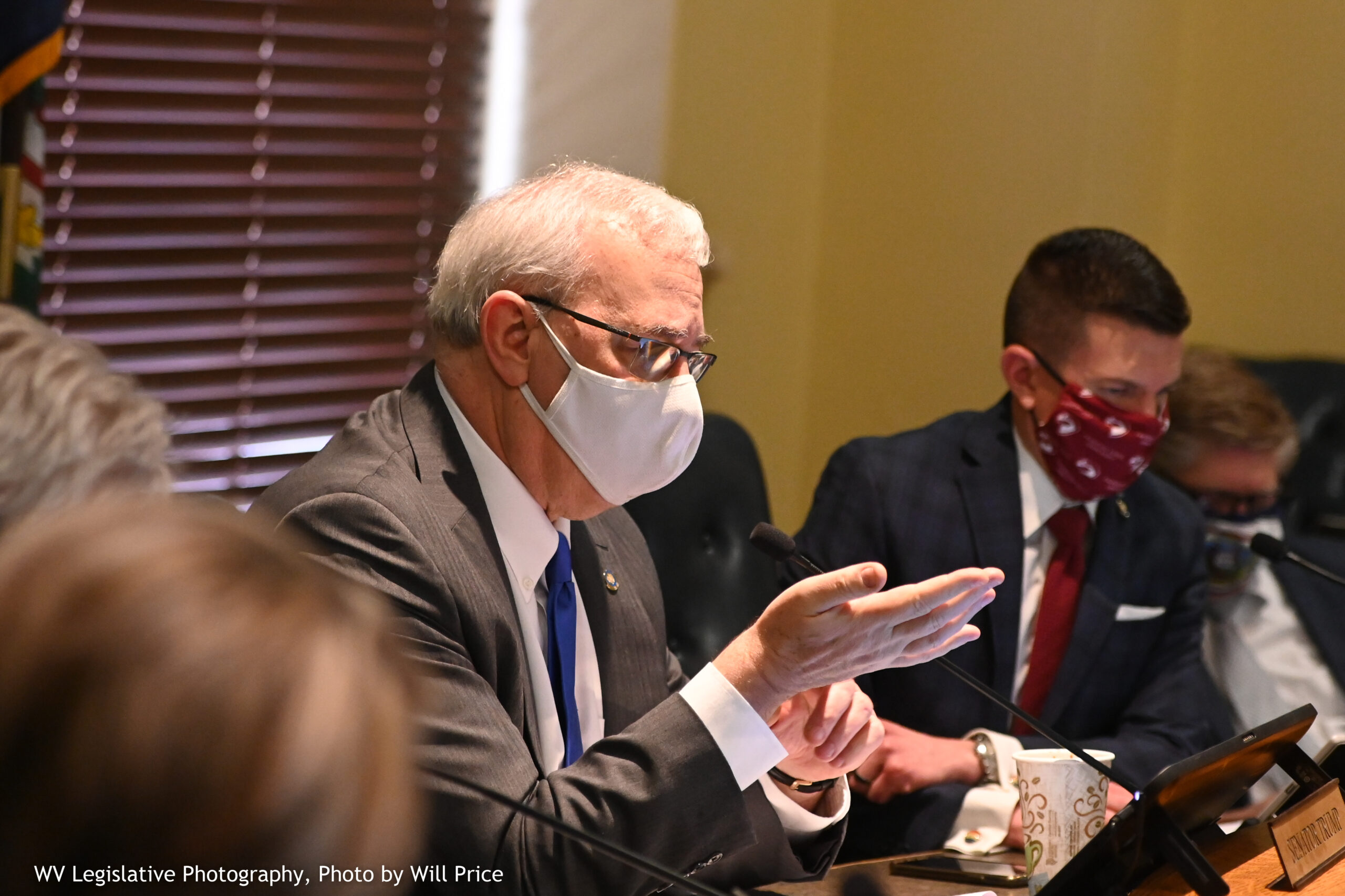MORGANTOWN – The Senate Judiciary Committee approved the perennial intermediate appeals court bill. For several years, a version of this bill has passed the Senate and died in the House.
This year’s bill is SB 275. The committee took the bill presented by the governor and reworked it to mirror last year’s bill, which was also SB 275.
The new court would begin work on July 1, 2022. It would have northern and southern districts with three judges each, paid $130,000 per year. Based on a successful amendment offered by Sen. Robert Karnes, R-Randolph, they would serve 12-year terms.
The six judges would initially be appointed by the governor. In 2024, all six seats would be filled by election to staggered terms of four, eight and 12 years, and then full 12-year terms for all six thereafter.
Under the new structure, the Office of Judges, which handles workers’ comp cases, would be eliminated, and all appeals would go directly to the workers’ comp review board and then appealed from there to the intermediate court.
The intermediate court would also handle appeals from family court; circuit court civil, guardianship and conservator cases; agency orders; and Health Care Authority certificate of need orders.
The state Supreme Court would be the next and final level of appeal.
Sen. Mike Romano, D-Harrison, objected to the bill’s plan to do away with administrative law judges for workers’ comp cases and put those cases in the hand of the three-member Board of Review. Instead of eight ALJs with years of experience and civil service protection handling the cases, he said, five hearing examiners will be doing the evidentiary work to hand to three political appointees.
Insurance Commissioner James Dodrill defended the change, saying the Office of Judges is overstaffed and its caseload has dropped over the years, from 26,000 protests to less than 2,300 per year. It will also reduce staff costs, cutting the full-time equivalent number from 41 to 20.
But former chief ALJ Rebecca Roush agreed with Romano. The change will remove the people with real experience dealing with the cases and hamper due process for an injured worker.
Romano offered amendment to remove the sections of the bill dealing with this topic, which failed in a party-line voice vote.
Other arguments against the bill were familiar from previous years.
Supreme Court Clerk of Court Edythe Gaiser supported Romano’s point that the court is unnecessary saying the court cleared more cases in 2020 than were filed, and it has no backlog.
Attorney Anthony Majestro, with the West Virginia Association for Justice, said the two courts could create confusion by offering conflicting decisions. It will slow justice, adding eight to nine months to the appeals process. “We believe that it’s an unnecessary expansion of government, and our tax dollars could be better spent elsewhere.”
A fiscal note for a similar bill, SB 4, puts the estimated startup cost for the court at just over $8.9 million, with an estimated annual cost after that of $7.6 million.
The bill passed in a divided voice vote. It will go next to Senate Finance.
Tweet David Beard @dbeardtdp




